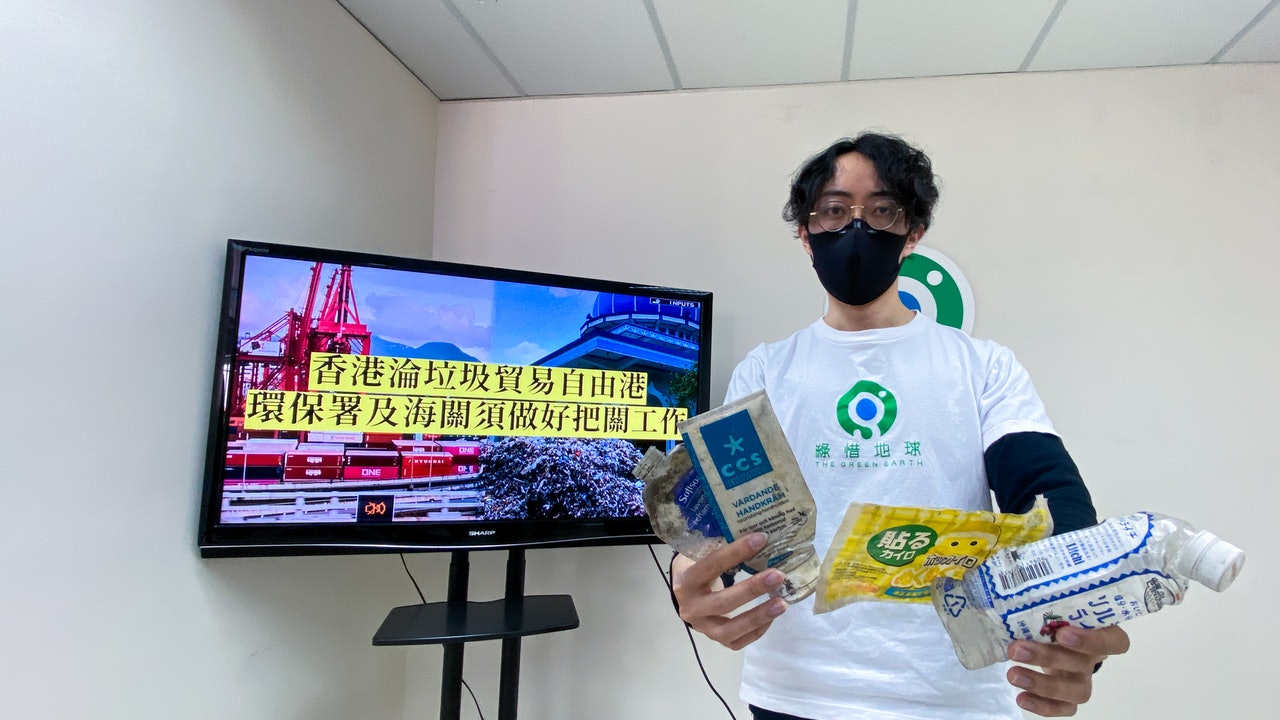Social News
Written by: Golden Chess
2020-12-31 17:59
Last update date: 2020-12-31 18:00
Hong Kong is well-known as a free port, and some environmental protection groups have discovered that many local containers shipped to Southeast Asia and other regions were returned to Hong Kong for stay after they were found to be waste plastics, which tragically turned Hong Kong into a "garbage trading free port."
According to data from the Environmental Protection Agency, the environmental group Green Earth pointed out that in 2019, 14 containers containing different wastes were returned to Hong Kong by Malaysia and the Philippines, involving more than 280 tons. In the end, multiple containers had to be recycled locally.
Huan Tuan questioned the source of this batch of waste, but the source of the waste was "hard food" in Hong Kong, and some of it had to be disposed of at the landfill.
Green Earth also quoted the Interpol report this year, which criticized Hong Kong for illegally transferring waste products to Southeast Asia.
The group urges the Environmental Protection Agency and Customs to do a good job of checking, if violations are found, they should be announced as soon as possible.
The Basel Convention, which regulates transnational hazardous waste, puts waste plastics trade under control for the first time, and will come into effect on January 1, 2021.
The Environmental Protection Department of Hong Kong formulated the "Guidelines for the Control of Import and Export of Waste Plastics", which stipulates that the import or re-export of controlled waste plastics must be declared.
Green Earth quoted the Interpol report in August this year, which named Hong Kong as a "free port for the garbage trade".
The report also pointed out that after the mainland banned the import of "foreign garbage" in 2018, although Hong Kong's re-export volume dropped by more than 80%, Southeast Asia and other places have become new "junk dumps", such as the 7 imported plastic garbage imported from Malaysia in 2019 The container is re-exported from Belgium via Hong Kong.
In addition, Green Earth pointed out that the working group under the Basel Convention specifically mentioned cases related to Hong Kong in its meeting in October last year.
A related case pointed out that Romania exported 123 waste slag containers to Xiamen Port on the mainland in 2016 but was rejected and transferred to Hong Kong. However, the containers were also refused to land when they were subsequently transferred to Malaysia. Finally, the relevant containers remained in Hong Kong until August 2020. It was shipped out of Hong Kong in the second half of the month.
Green Earth also said that since June, the world's second largest shipping company "Mediterranean Shipping" (MSC) has banned the collection of waste plastic containers destined for Hong Kong, reflecting the pivotal role of Hong Kong's free port of garbage trade.
Green Earth Initiative and Communications Manager Yang Rihui pointed out that Hong Kong is not a major source of plastic waste, but because of failing to control it, it has been criticized by the international community one after another, describing it as "a ugly international".
According to data from the Environmental Protection Agency, in 2019, more than 280 tons of containers containing different wastes were returned to Hong Kong by Malaysia and the Philippines.
Yang Rihui believes that part of the waste will eventually be dumped in Hong Kong's landfills. He criticized the "Environmental Protection Department and Customs for slackening their hands and feet, and ultimately demanding Hong Kong food."
Yang Rihui also said that the United States has always been the largest source of waste plastics in Hong Kong, and it has accounted for 25% of Hong Kong's total imports in the first 10 months of 2020.
However, the United States is not a party to the Basel Convention, so it reminds the Hong Kong government "to be alert to American containers, increase random inspections, and prevent the United States from transferring unwanted plastic waste to developing regions through Hong Kong."
The Mainland is expected to achieve zero import of solid waste before the end of the year
The Philippine Repatriation Ring Group reveals that Hong Kong's garbage containers ate more than 100,000 tons of foreign garbage and fell into the international garbage dump
China refuses to accept "foreign garbage" Malaysia shouts to the United States: don't treat us as a garbage dump
One year after China's "foreign garbage" ban was implemented, German exports of plastic garbage to China fell by 95%
Huan Tuan reveals that last year’s industrial waste increased by more than 1,000 tons per day, and 20% of waste wires suspected of being “foreign garbage”
01News
Environmental Protection Agency





/cloudfront-eu-central-1.images.arcpublishing.com/prisa/3I74UEXLYRBBRPGPSGWNN6WXH4.jpg)

